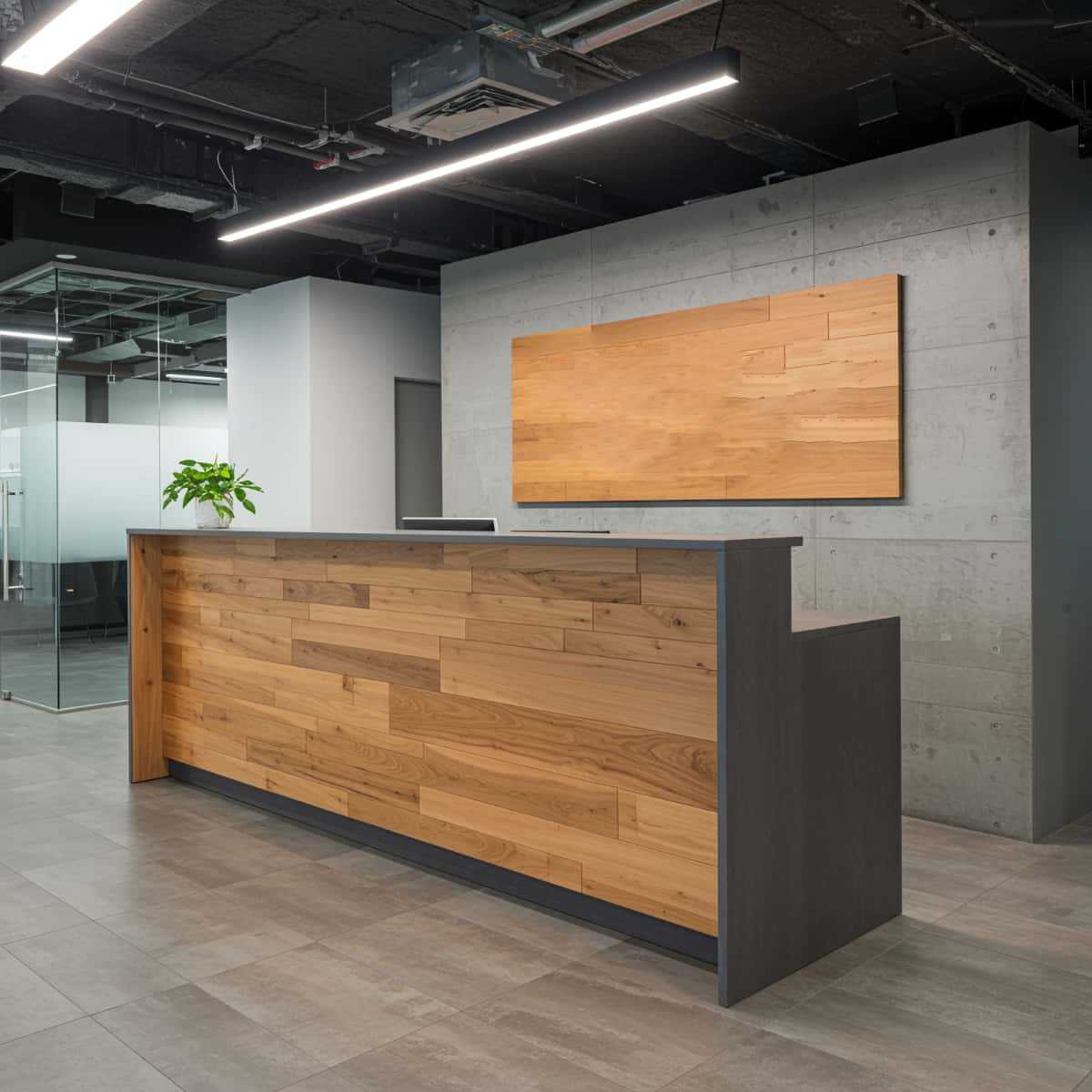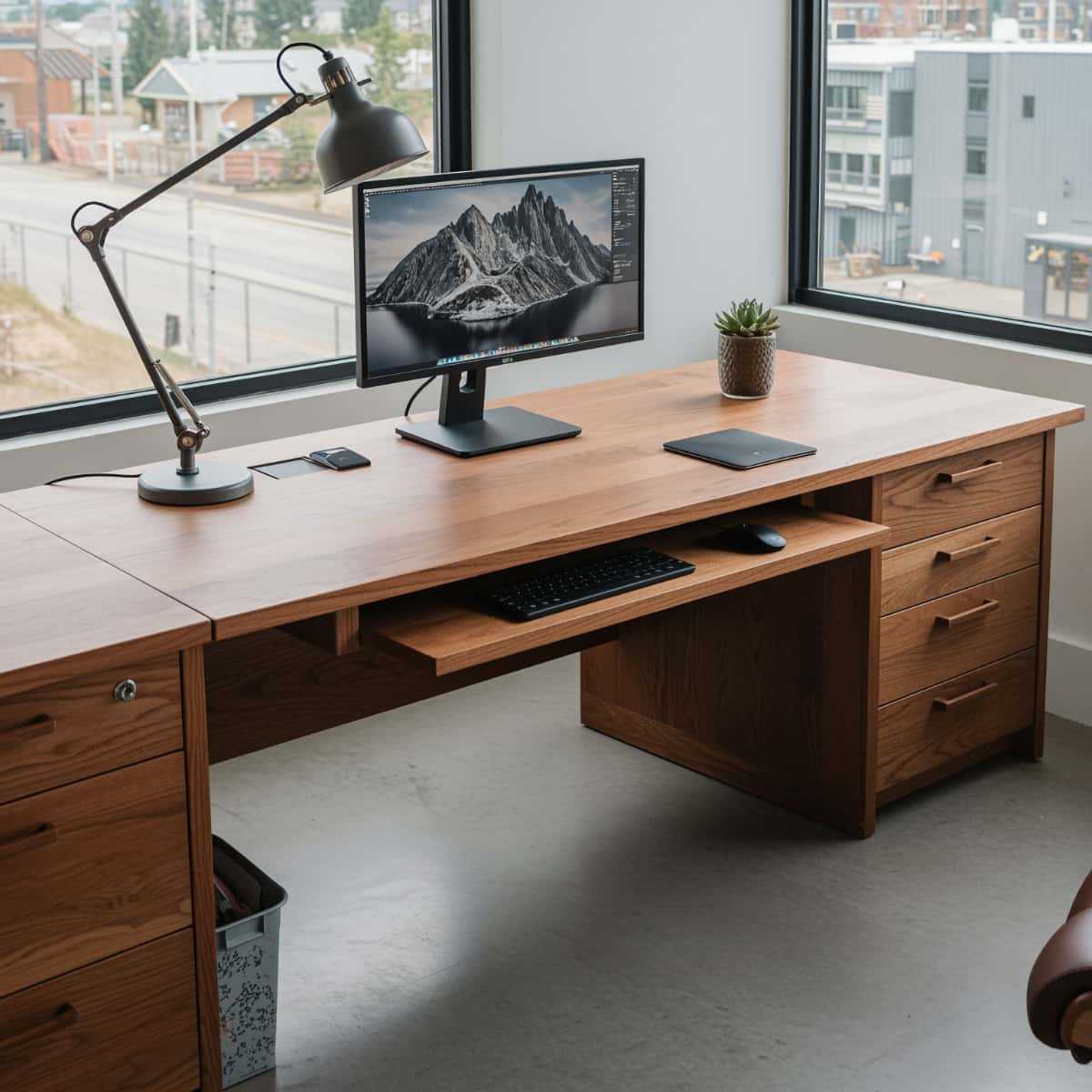In modern business environments, few objects appear as ordinary and easily replaceable as a desk. Yet, a closer look reveals that the office desk — especially a thoughtfully designed or custom office desk — is one of the most influential elements in any workspace. It defines how people work, communicate, and perceive the company around them. From productivity and comfort to corporate identity and client impressions, the desk silently shapes the entire office experience.
At first glance, a desk may seem like a flat surface to hold a computer and documents. In practice, it’s an interface between human focus and the physical environment. The ergonomics of height, proportions, and materials affect how long an employee can stay comfortable, while the layout of custom computer desks can determine how teams collaborate or maintain privacy. A poorly planned work surface leads to fatigue, disorganization, and distraction. In contrast, a desk that fits the user’s posture, space, and workflow supports concentration and efficiency throughout the day.

The desk also carries symbolic weight. In many companies, the design of the custom reception desk becomes the visual introduction to the brand. It is the first element that visitors notice — a point of contact between external perception and internal culture. A well-designed reception desk communicates professionalism, reliability, and attention to detail. It can reinforce the brand’s values more effectively than a wall logo or marketing slogan. In client-facing industries, where impressions matter, this first moment can influence trust and confidence.
Beyond aesthetics, materials and craftsmanship influence how employees feel about their workplace. Natural textures — especially in a custom wood desk — bring warmth to the office, balancing the often sterile look of modern interiors. The tactile quality of wood surfaces contributes to a sense of stability and comfort, reducing stress and promoting longer periods of focused work. Studies in environmental psychology confirm that natural materials and well-proportioned furniture improve cognitive function and overall well-being in office environments.
Flexibility is another key factor. Businesses today evolve quickly: team sizes change, workflows shift, and hybrid models blur the line between home and office. A custom made desk allows companies to adapt — integrating power systems, cable management, and digital accessories in a way that off-the-shelf furniture rarely can. The same principle applies to custom desks for home office setups, where the workspace must serve dual roles: professional productivity and domestic harmony. The right desk can turn a corner of a living room into a disciplined, comfortable workspace that still blends with the home’s interior.
From a managerial perspective, the desk is also an investment in efficiency. The time employees spend adjusting screens, searching for space, or struggling with glare and clutter translates directly into lost productivity. Conversely, a well-designed workstation saves minutes on every task and reduces long-term ergonomic issues such as neck and wrist strain. Over time, this translates into measurable performance benefits and lower healthcare costs — outcomes often overlooked when choosing office furniture.

But beyond utility, the custom office desk plays a role in company culture. It reflects how a business values the people who work there. When each workstation is designed with precision — whether for an individual or a shared space — it sends a clear message of care, professionalism, and permanence. Employees notice when their surroundings are thoughtfully built; it encourages them to bring the same attention to their own work. In this sense, the desk becomes part of the brand’s DNA — a physical expression of how a company sees itself and treats its people.
Ultimately, the desk is far more than a piece of furniture. It is the anchor of daily operations, the silent organizer of workflow, and the foundation of a company’s visual and functional identity. In the same way architecture defines space, the desk defines purpose. A truly effective workplace doesn’t begin with a building or layout — it begins with the right desk.
October 19, 2025


